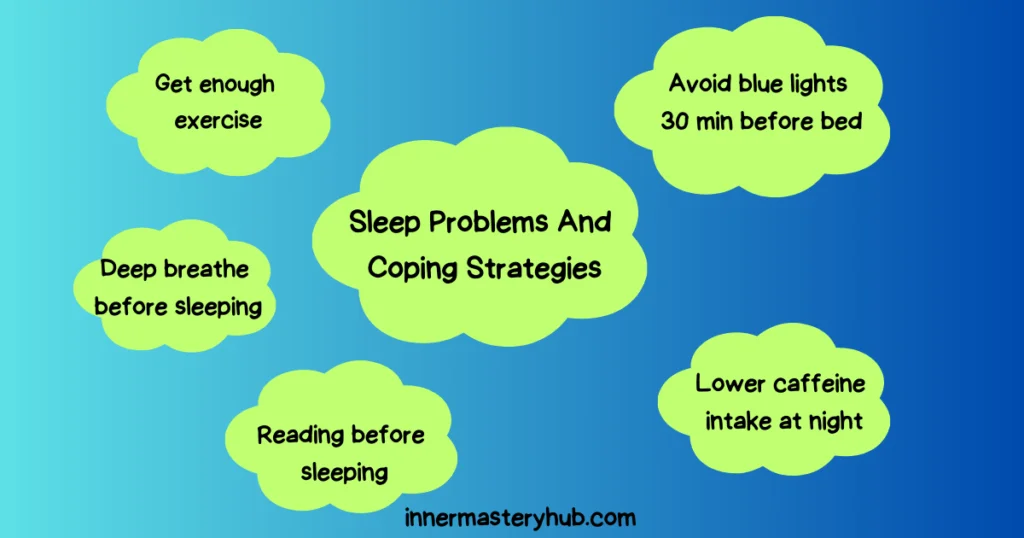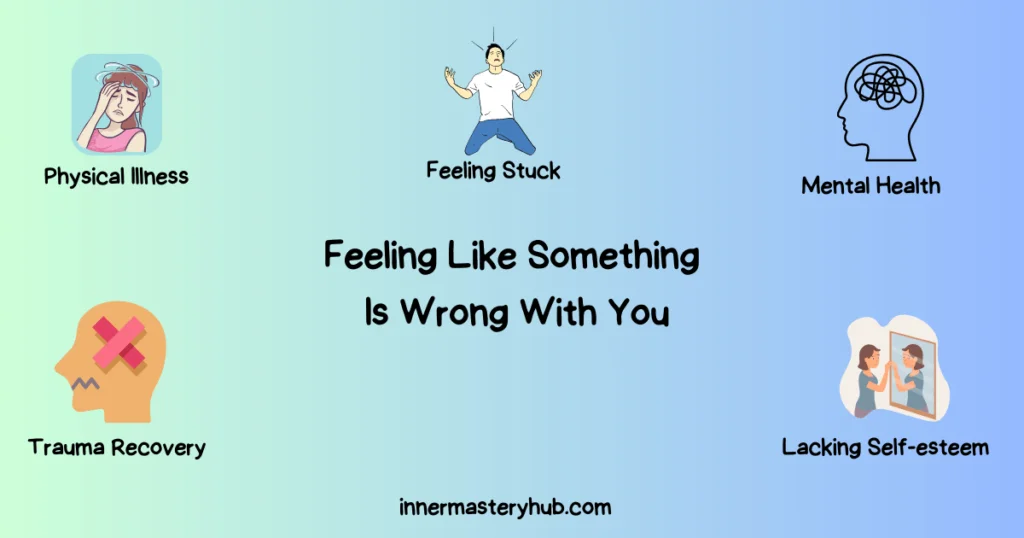
“Sorry, I’m late. Traffic was terrible.” “I’ll tackle that project tomorrow. Today was just too hectic.” “That wasn’t my best work; I was exhausted.” Sound familiar? You might have caught yourself using these lines. They’re classic excuses, a way to dodge self-accountability.
Excuses are a standard fallback, but they need to be corrected. They’re tools to stay in our comfort zones and avoid growth. Real achievers don’t make excuses. They accept personal accountability for everything they do, which drives their success.
In this blog, we’ll explore the importance of self-accountability and how it can be a game-changer for achieving your goals.
Table of Contents
WHAT IS SELF ACCOUNTABILITY?
Accepting responsibility for your choices, actions, and outcomes is a key component of self-accountability. Being truthful and taking ownership of your accomplishments and shortcomings are key. For instance, when you miss a deadline, you recognize that you need to get better at managing your time instead of blaming it on outside distractions.
Have you ever felt that you need help keeping to your goals, like starting your exercise routine or finally learning a new language? This is where self-accountability comes in! It’s a personal commitment to take responsibility for your actions, behavior, choices, and their impacts.
For instance, it is like having a teammate who helps you keep you on track. Become your supporter and coach instead of relying on others to motivate you.
For example, if you plan to run a marathon, you may keep track of your training miles in a journal or update a friend on your progress. That way, you’ll likely remain stuck because you’ve accepted the duty to complete it!
Accountability is closely related to or a synonym for self-discipline, making a routine, and staying committed to it because it demands an authentic relationship with yourself.
While blaming others is the opposite of self-accountability, you should not point fingers at others in the face of challenges.
Here is a breakdown of Personal examples of accountability that I have learned over the years;
Self-accountability means that every decision you make will have consequences, which you and your loved ones will ultimately have to endure. It makes you conscientious and develops humility. This creates resilience to face negative emotions, and taking the right steps will benefit you in the long run.
By taking Ownership, you learn to stay in control of your choices and not blame external factors. You become in charge of your actions. In other words, you become a person with an internal locus of control.
Practicing Self-accountability develops a sense of commitment and a proactive approach to you. When you say that you will do it, you try to conquer the challenge in the best possible way. You do not take external factors and pressure to get motivation but rely on your intrinsic intentions and motivation.
You become a person of integrity by taking actions in alignment with your beliefs and values.
Let me share a personal experience that I could be more proud of.
I organized a significant community event that required coordinating various activities and teams. During this time, I sprained my ankle, which significantly reduced my mobility and slowed my pace.
Shortly after, I came down with a severe cold, which further drained my energy and focus. In all of this chaos, I had committed to a three-day workshop on community leadership, which demanded a lot of my time for preparation and execution.
If I focus on these challenges, I can easily protect my ego, forgive myself, and move on without learning from the situation.
My injuries and illness were real challenges, but I could have managed my tasks better. This realization made me more conscientious and humble.
I decided that despite my setbacks, I needed to take responsibility for my actions and decisions, which would have kept the project on track. I adjusted deadlines to handle my responsibilities better, showing a strong commitment to the project that demonstrated integrity. My actions reflected my commitment to the community event. I took painkillers, and with essential first aid, I managed to fulfill my commitment.

The Importance of Self Accountability
Being accountable to oneself is essential to personal growth. It promotes personal development and helps you stick to your goals. When you hold yourself accountable, you accept responsibility for your acts and acknowledge your behavior.
Accountability fosters a culture of dependability and trust in the workplace. Employees who are held accountable for their actions are more productive and help the team succeed. They take responsibility for their work, meet deadlines, and consistently enhance their performance.
Relationships build trust and respect between partners. When you are accountable, you admit your mistakes and work on resolving conflicts. This honesty strengthens your bond and improves communication.
Maintaining order and justice is facilitated by a culture of accountability, which makes sure that everyone abides by the laws and conventions. Self-accountable individuals act properly and help create a community that is safe and equitable.
The public must hold governments responsible. Good governance and openness are guaranteed. Government representatives who are held accountable make choices that uphold moral principles and serve the general public.
WHY IS BEING ACCOUNTABLE IMPORTANT?
Being accountable is super essential for a few reasons! Here’s why:
- Resolve for the new year and then, by February, forget about it.
- Taking responsibility keeps you motivated and focused. You’re more likely to follow through and adhere to the plan if you pledge yourself.
- You become more confident and trust in yourself when you accomplish your goals!
- Everyone makes mistakes from time to time. You can take responsibility for your mistakes, grow from them, and improve the next time by being accountable.
Benefits to being self-accountable
- Boosts personal growth.
- Enhances goal achievement.
- Builds trust in relationships.
- Improves workplace productivity.
- Encourages responsible behavior.
- Fosters a culture of commitment.
- Strengthens integrity and honesty.
- Promotes continuous self-improvement.
- Ensures better time management.
The Four Steps to Self-Accountability
- See It. Encourage open communication so employees identify areas for improvement.
- Own It. Help them take responsibility for their performance.
- Solve It. Guide them to find creative solutions for roadblocks.
- Do It. Please support them in putting their solutions into action and achieving goals.
Examples of Self-Accountability
- Fitness goals.
- Learning a new skill.
- Completing a project
- Breaking a bad habit
- Saving money
How to hold yourself accountable; 12 Ways
It takes time to learn to hold oneself accountable. While it may be easy to place the blame or offer an explanation, self-control, and accountability, indicate that you are in control of your actions and feelings.
Reflect on Your Beliefs
What are your rules? Are you responsible, or a team player? These are the values of highly accountable people.
Conversely, negative values like criticism, pessimism, and laziness contribute to a lack of self-accountability.
Our values form in childhood, influenced by the beliefs of those around us as we strive to fit in and earn love.
Once you identify your values, you can change them and become more self-accountable, which leads to personal growth and better relationships.
Transforming your mindset
Transforming your mindset starts with turning your “shoulds” into “musts.”
Our lives are filled with things we “should” do: lose weight, find a job we love, and work on our relationships to turn these goals into “musts,” and connect them to a purpose in our lives.
Remind yourself that they are essential to your fulfillment and living a life with no regrets.
Giving priority to your goals and viewing them as non-negotiable creates a sense of urgency and commitment. This shift in perspective empowers your well-being as you take consistent action and achieve your goals.
Create a Schedule
Form your schedule of most important tasks or you are more productive at first and leave time for questions or answering emails. While planning is helpful, things may pop up, so leave some wiggle room.
Realizing how much you can accomplish daily makes checking things off your to-do list more manageable. Time management can be challenging, but setting reasonable timeframes for smaller tasks helps limit procrastination.
Address your inner critic.
Everyone has an inner monologue that affects how we interact with the world. That little voice shapes our behaviors and the words we choose to speak. Identifying and stopping negative self-talk is vital for positive engagement with others. Next time a thing goes wrong, recall how you react.
Is your “inner critic” blaming someone else? Readjust your thought pattern and do not fall prey to this ego trap in the future.
Consciously monitoring and adjusting your inner dialogue can create a more positive outlook and constructive behavior.
Reward Yourself
Make it a habit to celebrate wins, both big and small. After each milestone, take a moment to reflect on how far you’ve come and what you’ve learned to start your journey to personal development.
Rewards can vary. Some might enjoy a fancy dinner or a cocktail night. In contrast, others might prefer an hour of uninterrupted reading time or a long bath.
Rewarding yourself is self-care, no matter what form it takes for you.
Have an Accountability Partner
Any self-improvement journey is more challenging, so find a family member, loved one, or friend with similar goals and supported one another.
You can vent, discuss big goals, and exchange positive affirmations with your accountability buddy. Please make sure you’re comfortable confiding in them.
Having an accountability partner encourages and keeps you motivated. You can share your progress, celebrate achievements, and tackle obstacles together. This mutual support system strengthens your commitment to personal growth and makes the journey more enjoyable.
Take Feedback
Positive feedback is a chance to get better rather than a reflection of your value.
Seek regular feedback from coaches, mentors, and peers in your training or work processes. Acknowledge and evaluate your performance regularly, then use introspection to make the required corrections.
“What went well today?” and “What could I have done better?” are some questions you should ask yourself.
Technology is a useful tool for gathering input. helping you hold yourself to specific performance standards. Utilize fitness apps, productivity tools, financial software, or time-tracking tools to gain insights and improve.
Apologize Sincerely
Everyone makes mistakes. Apologize if you have made a mistake or harmed anyone, and again, set your priorities and start anew. Do not fall into the trap of your ego by blaming others.
Similarly, forgive coworker for their shortcomings. Be kind and generous.
Time Management
Develop self-accountability by identifying your most important tasks and tackling them first. This ensures your day is manageable.
Dedicate specific time blocks for different activities. This ensures you protect enough time for high-priority tasks. Avoid multitasking, as it often reduces productivity. Focus on one task at a time to maintain accountability.
Reflect and Adjust
Reviewing your development regularly is crucial for self-accountability. Honor all of your accomplishments, no matter how tiny, as this will increase your motivation.
Consider setbacks as opportunities for growth. Examine what went wrong and modify your strategy as necessary. Adopt a flexible strategy. If a certain tactic isn’t working, give it up and try another.
React Responsibly
We all have moments where stress or fatigue cloud our judgment, leading to choices that might not be ideal for ourselves or the company.
Self-accountability is key to avoiding this. Take a step back and honestly assess yourself, your workspace, and the people around you.
Take accountability for improvements; you can identify adjustments to make better decisions and bring your best self to work.
Stay Organized
Procrastination and distraction from your objectives might result from disorganization.
Organize both your digital and physical workspaces. To prioritize your chores and maintain organization, make daily or weekly to-do lists.
A sense of achievement is experienced when crossing out accomplished tasks. Make use of visual aids such as goal-tracking charts to illustrate your development. This can be highly motivating.
Staying organized helps you maintain focus and stay on track.
TAKEAWAY
Self-accountability isn’t a magic switch, but it is the key to unlocking your potential. It’s about stepping up to the plate, owning your goals, and becoming the architect of your success. So ditch the excuses, embrace the challenge, and watch yourself transform into the powerhouse you were always meant to be. Remember, the journey to a better you starts with taking the first accountable step.
RELATED
Boosting Self-Esteem With Daily Affirmations: 50 “I Am Enough” Quotes
Healing Self-Forgiveness Quotes
5 Shadow Work Books That Will Shine A Light On Your Inner Self
Embracing Self-Love: Overcoming The “I Hate My Body” Struggle
FAQS
What does lack of self-accountability mean?
Ignoring your own actions, choices, and results is a sign of a lack of self-accountability. Blaming other people or outside forces for your errors and failing to grow from them is a common practice. This can have a detrimental effect on your personal and professional lives, impede personal development, and strain relationships.
What are the three habits of personal accountability?
Three personal accountability habits are:
In order to find areas for development, self-reflect on your activities and results on a regular basis.
Setting goals: Make a plan to achieve your goals and set attainable, well-defined objectives.
Honesty: Tell the truth to yourself and other people about your goals, achievements, and difficulties.
What are the 3 C’s of accountability?
What are the three C’s of accountability?
Clarity: Clearly state duties, obligations, and expectations.
Commitment: Show that you are committed to fulfilling your responsibilities and keeping your word.
Consequences: Determine and comprehend if meeting or not meeting expectations will have positive or negative effects.
Why do I struggle with self-accountability?
Self-accountability issues are frequently caused by a tendency of creating excuses, a lack of specific goals, or a fear of failing. Low self-esteem, procrastination, or a dislike of discomfort and change can also be the cause. Self-accountability can be enhanced by recognizing these obstacles and making an effort to go past them.
How can you develop personal accountability?
Establish definite objectives, make a plan of action, and monitor your progress on a regular basis to cultivate personal accountability. To hold yourself to high standards and pinpoint opportunities for growth, engage in self-reflection. Be open and honest about your accomplishments and shortcomings, and ask for input from others. Remain dedicated and make any adjustments to your strategy.
How can one master self-accountability?
Developing self-accountability requires establishing specific, attainable goals and monitoring your progress on a regular basis. It is essential to set personal deadlines, reflect honestly on successes and failures, and modify plans of action accordingly. Frequent introspection and dedication to one’s own standards of excellence are crucial. Asking for feedback and utilizing resources like journals or applications can also help with accountability.






